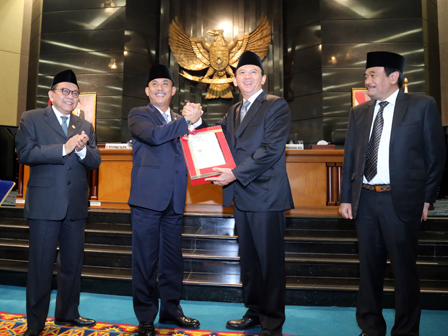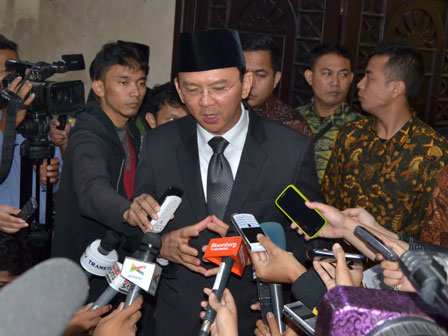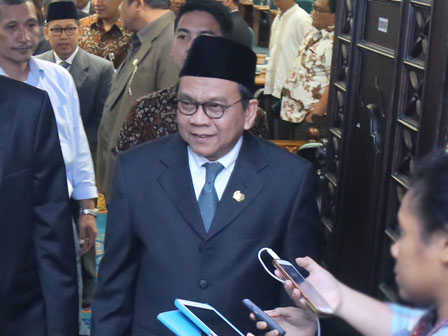Basuki Submitted 2016 Draft APBD to Jakarta DPRD
Reported by Erna Martiyanti | Translated by
The direct expenditure is allocated by Rp 34.58 trillion to be used as main and priority activities
Jakarta Governor, Basuki Tjahaja Purnama, submitted 2016 Draft City Budget (R-APBD) to Jakarta City Council. The total budget amount is Rp 66.37 trillion, 0.92 percent bigger compared to 2015 City Budget Amendment by Rp 65.76 trillion.
Basuki hopes the city council will be able to ratify the draft based on the schedule. “Now the draft will be discussed by the council,” he said, Thursday (12/17).
Today, RAPBD 2015 Discussed in Fractions LevelBased on the 2016 draft city budget, regional expenditure total is Rp 59.1 trillion. It is hoped the regional revenue could reached Rp 58.21 trillion. The regional revenue planning is expected from Regional Revenue (PAD) by Rp 39.32 trillion, balancing fund Rp 13.86 trillion, and others up to Rp 5.01 trillion.
The regional revenue is expected from regional tax by Rp 32.01 trillion, regional retribution Rp 800 billion, local treasury Rp 790 billion, and others up to Rp 5.72 trillion.
Basuki added that the indirect expenditure is allocated Rp 24. 51 trillion with details are Rp 17.93 trillion as official expenditure, Rp 30 billion as interest expenditure, Rp 1.61 trillion as subsidy expenditure, and grant expenditure Rp 1.99 trillion.
Others are social aid expenditure Rp 2.52 trillion, and politic party expenditure Rp 1.81 billion.
“The direct expenditure is allocated by Rp 34.58 trillion to be used as main and priority activities,” he added.
According to him, next year’s Jakarta visions are handling flood, traffic jam, trash, and slum areas.
As for the funding revenue, is taken from unused budget (Silpa) 2015 Rp 7.93 trillion, and also from World Bank’s loan for Jakarta Emergency Dredging Initiative (JEDI) program Rp 229.93 billion.
The funding expenditure is allocated Rp 7.27 trillion which is used as government’s capital equity.
Basuki continued that next year’s expenditure ration is dominated by direct expenditure by 59 percent and 41 percent for indirect expenditure.



